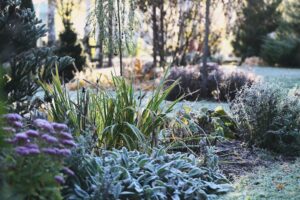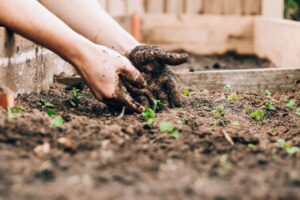
Green waste compost has grown in popularity as it not only benefits your garden but has a positive environmental impact. However, when looking for quality compost, be sure that yours is PAS100. Otherwise it may be filled with contaminants and could deter growth of your plants.
PAS100 is the certification for green waste compost and this ensures that your compost has gone through the correct quality procedures and is safe for you to use and put on your garden. PAS100 is the industry standard certification for compost, created by The British Composting Association and is available for the public to view.
Compost can have properties that are hazardous when it’s handled and used; consequently PAS100 specifies its minimum quality and ensures the compost is created with good practice. In support of this, PAS100 requires the company that creates the compost to carry out Hazard Analysis and Critical Control Point (HACCP) planning, operate a Quality Management System (QMS), and supply clear information to the customer.
The use of PAS100 is to help improve the confidence in composted materials among end users and to help you differentiate products that are reliable, safe and of high quality.
Hazard analysis and critical control point (HACCP) planning is a basis for process design and operation that identifies which hazards and associated risks should be reduced to acceptable levels – meaning that the compost is safe to use and fit for purpose. Hazards assessed are: adverse effects on the environment and on plant health.
The process to meet PAS100 standards is extensive and is comprised of 7 points:
1) Random spot inspections are required on loads that are brought into the recycling site and are checked thoroughly for materials that should not be included. We always find some unusual objects that people put in their green waste bins, such as footballs, shoes and ornaments, but we make sure these are always removed before the composting process begins. Upon inspection, if loads are contaminated and there is a percentage of other objects found, then these loads will be turned away.
2) The green waste is shred and is then formed into batches to start the composting process. All information is recorded and each batch is given its own individual code to ensure full traceability.
3) Each composting batch goes through a monitoring phase in which temperatures are monitored and are maintained at 65-80 °C to ensure all weed seeds are destroyed. Moisture is retained throughout this phase and each batch is turned regularly. This phase consist of sanitization and stabilisation of the compost and can last up to 14 weeks.
4) Each batch will then go through product preparation procedures, such as screening to create different grades of compost and to also remove contaminants, such any small bits of plastic. This procedure could also include blending the PAS100 compost with other products, to create a variation of composts.
5) Once the product is all prepared it will need to be stored well away from any materials undergoing composting. The product can be stored outside or undercover, but should be clearly labelled.
6) Once the composting process is complete a representative sample is taken of batches on a regular basis and tested for safe use. Samples are tested to ensure that there are no materials that affect the quality of the compost, such as Salmonella, E.coli, various plant nutrients and heavy metals. With each sample taken information is recorded, such as the date, grade and batch code. The sample is then sent within 1 working day of it being taken to a laboratory to be tested.
7) If the sample does come back as a fail, an investigation as to why it failed will proceed and compost will not be allowed to leave the site. New samples will be taken from the failed batch and once passed, compost leaving the site can resume.
Full traceability, from arrival on site for composting to dispatch from the site, is paramount to PAS100 accreditation and guarantees that the correct procedures are in place. Being aware of the PAS100 accreditation allows you to know exactly what you are purchasing when it comes to compost. It helps you make an informed decision and ensures that you have the best quality compost for your garden.



